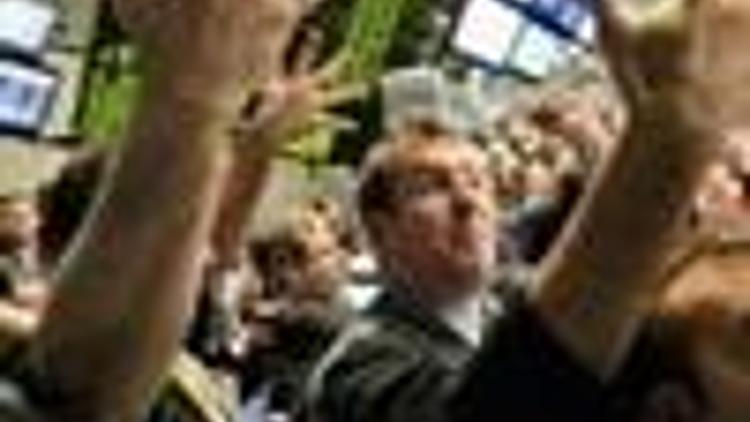Turkey's April 14, 2010 benchmark also rose more than 4 percent and stayed over its critical 20 percent level.
The euro slid to a 13-month low against the dollar, below $1.36, as the yen surged more than 1 percent to 103.71 per dollar after European leaders came away from a weekend meeting without announcing a bailout plan for the continent’s troubled financial sector. The dollar rose half a percent against a basket of major currencies.
"Strengthening of the yen points at a dying trend of carry trade. This hits the lira and lira-denominated investment instruments," HSBC strategist Fatih Keresteci told Reuters.
Global investors have borrowed in low-yielding yen to invest in high-yielding lira and other emerging market currencies in what is called carry trade flows.
The lira may weaken to the 1.3350-1.3500 level against the dollar, he said.
Europe's scattered response to the financial crisis weighed on investors as the divisions in how European leaders think best to approach the financial crisis were clearly on display.
A $700 billion package to rescue the United States financial sector, passed by the U.S. House of Representatives on its second try on Friday, and signed by President George W. Bush into law, also failed to cheer investors.
The Turkish market tumbled on Friday in a delayed response to the global turmoil as local investors returned from a 3-½ day public holiday marking the end of Ramadan.
WALL ST FALLS BELOW CRITICAL LEVEL
The Dow Jones Industrial Average plummeted below 10,000 points for the first time in four years Monday as panic gripped global stock markets in an escalating financial crisis.
The blue-chip index fell as low as 9,965 in morning trade, the first time the index was below the key psychological level since October 2004. At 1415 GMT the index was at 9,972.86, a drop of 3.4 percent or 352.52 points.
The Federal Reserve also took fresh steps to help ease credit markets. The central bank said Monday it will begin paying interest on commercial banks reserves and will expand its loan program to squeezed banks.
Major European stock markets were also down, after Germany had to scramble to organize a rescue deal for lender Hypo Real Estate after an initial deal crumbled.
Britain's top share index fell more than 6 percent to hit a four-year low on Monday, the lowest point since Nov. 1, 2004, as Japan's Nikkei share average ended down 4.25 percent, at its lowest close since February 2004.
The MSCI index of Asia-Pacific stocks outside Japan also slid 5.35 percent to the lowest since December 2005, Hong Kong's Hang Seng index was down 3.35 percent as South Korea's KOSPI was down 4.3 percent.
STOCK EXCHANGES SUSPENDED
Several stocks markets around the world suspended trading after suffering heavy losses during Monday trading.
Russia’s leading stock market posted its worst-ever one-day fall Monday as shares shed almost a fifth of their value on worries about exposure to a worsening worldwide financial crisis; trading was suspended twice during the day.
The benchmark index on the dollar-denominated RTS stock exchange plummeted 19.10 percent to close at 866.39 points, 65 percent down from an all-time high posted in May this year.
Oil prices, the backbone of the country’s economy, fell sharply in recent days - dropping to below $90 a barrel.
Iceland's stock exchange suspended trading in all financial shares, including the major banks Kaupthing. The government earlier announced Monday it was drafting a plan to deal with the financial crisis engulfing the Nordic country.
Trading in Brazil's stock market was suspended twice as stocks plunged more than 15 percent. An automatic cut-off takes effect when the Ibovespa index in the Sao Paulo market loses 10 percent -- a bar reached within 19 minutes after opening as investors sought to exit what used to be one of the world's most promising emerging economies.


